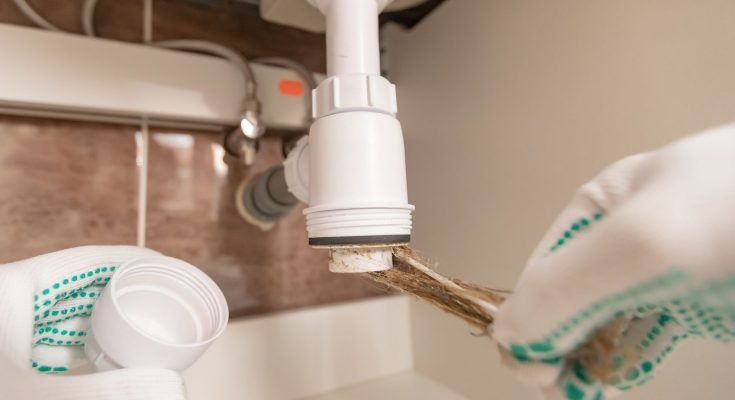Few things are more frustrating than a clogged drain, especially when it repeatedly clogs, no matter how often you clear it. While most clogs are easy to handle, some aren’t. When should you roll up your sleeves and do it yourself, and when should you throw up your hands and call the plumber? This guide should help you weigh the pros and cons of DIY versus professional drain clearing so you can determine which is right for you.
The Case for DIY Drain Clearing
Choosing to clear a drain yourself is quicker, cheaper, and more empowering. Here’s why a DIY approach is best:
- With a plunger or drain snake, you can save money on easily cleared clogs.
- Clear minor clogs on your own schedule.
- Every household repair job is an opportunity to learn, and removing clogs is a basic skill every homeowner should have in their mental toolbox.
When DIY Is Best
Doing it yourself is best for small blockages in sinks, tubs, or shower drains. How can you tell? Taking the DIY route will swiftly reveal the extent of the clog. Clearing drains is just one of many DIY plumbing projects anyone can perform.
On the Other Hand…
DIY drain clearing has its downsides. Missed or improper techniques, such as using an auger or drain snake, could worsen the problem or break or puncture the pipes. While drain cleaning chemicals work, they’re terrible for your pipes and may cause issues that require a plumber’s help to repair. Always weigh the complexity of the situation before proceeding.
When It’s Time to Call a Pro
For complex, persistent, or high-stakes problems, bring in a professional:
Expertise
Professionals will quickly identify issues beyond surface-level clogs, such as pipe damage, tree root intrusion, and faulty older plumbing.
Advanced Tools
Professional plumbers have access to tools the average homeowner doesn’t. They utilize state-of-the-art equipment to clear tough blockages. For instance, the purpose of hydro line jetting services is to get rid of gunk you can’t remove with a drain snake.
Long-Term Fixes
Professionals don’t just clear the clog—they also address your plumbing system’s overall condition. They can identify poor configurations and antiquated plumbing elements, such as drum traps, and remove and replace them to improve drainage.
Which is right for you between DIY and professional drain clearing? When should you call a pro? Pretty much when a job proves too much for your skill level and available tools! Recurring clogs or complete drain blockages signal a deeper problem. Years of grease, scale, and debris trapped further down require a plumber, especially for old and fragile systems. Naturally, professional work will cost more than DIY efforts, but the savings are worth it!




